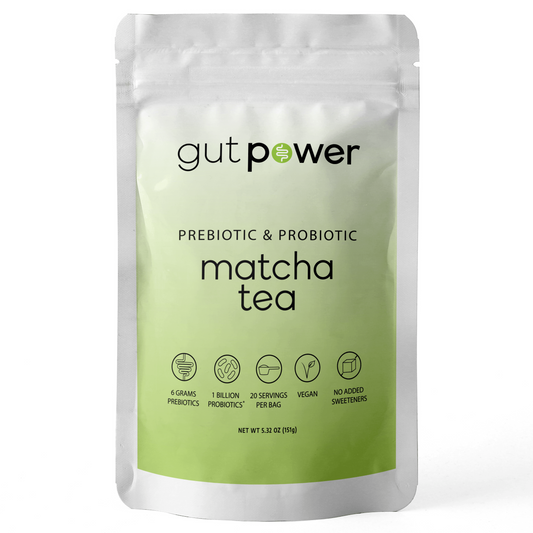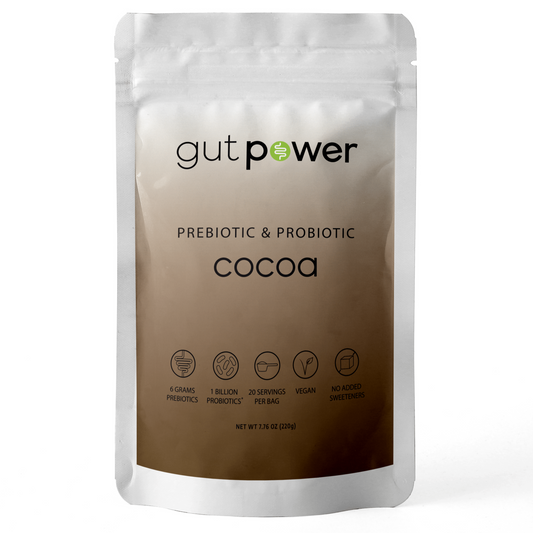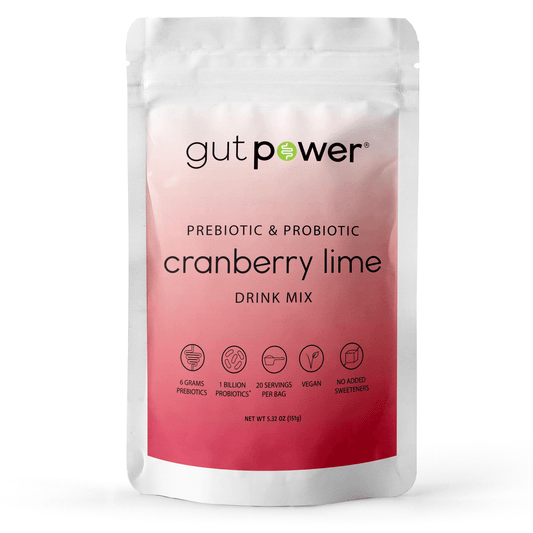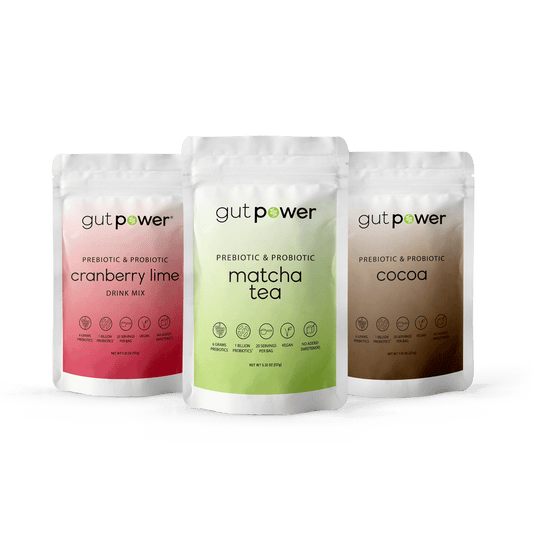Tea can be a powerful tool when it comes to improving your gut health, but what makes matcha the best tea for digestion? In this article, we’ll discuss why matcha tea is your best bet when it comes to improving digestive wellness.
Tea & The Gut
So -- what makes tea especially helpful for gut health?
Tea contains inflammation-fighting, probiotic-fueling compounds called polyphenols.
Prebiotics act as fuel for the good bacteria living in the gut, meaning they feed your good gut bugs and help them thrive.
You can think of polyphenols as supplies that your good gut bacteria need to complete their important tasks, like making vitamins, reducing inflammation, and regulating immunity.
When your good gut bacteria “consume” polyphenols, they transform them into helpful antioxidants that you can then absorb into your bloodstream.
Now, many plant foods contain polyphenols, but tea stands out. Generally speaking, tea is one of the best sources of polyphenols you can get!
Consuming plenty of polyphenol-rich tea ensures your gut gets what it needs to thrive.
Matcha Green Tea for Digestion
Is Green Tea Good for Digestion?
Green tea has been popular for ages, and for good reason: it’s excellent for your health (especially your gut health)!
But there’s a difference between year-old 99-cent tea bags from the grocery store and freshly ground matcha green tea: Matcha tea is packed full of gut-nourishing polyphenols!
What is Matcha Tea?
What’s so special about matcha? After all, isn’t it made from the same stuff as regular green tea?
Regular green tea is made by steeping green tea leaves and consuming the water that remains.
Matcha is also made from green tea leaves, but they are finely ground into a powder and put directly into water or milk.
By drinking matcha tea, you’re consuming the whole leaf rather than the tea that remains after steeping green tea leaves.
The whole leaf contains more polyphenols than steeped green tea -- resulting in more potent gut health benefits.
Best Tea for Digestion: Tea with Added Prebiotics & Probiotics
Now we know that tea -- especially matcha tea -- has significant benefits for the digestive system.
But why stop at polyphenols? Other ingredients, like prebiotics and probiotics, can amplify the results of polyphenols on the gut.
Go the extra mile for your gut by trying matcha tea with added prebiotics and probiotics, like Gut Power Matcha.
With all three, you’ve got the trifecta of ingredients you need to support your digestive system -- polyphenols (from matcha), prebiotics, and probiotics. Let’s look at why these are all important.
Fiber-based prebiotics (in addition to polyphenols, which also act as prebiotics) can be especially useful when it comes to improving motility in the gut - that means your food moves at the appropriate pace through your digestive tract and you have bowel movements regularly.
Probiotics are live beneficial bacteria that not only can improve your digestive system function, but can also benefit your overall health.
Together, polyphenols, prebiotics, and probiotics are the ultimate combination when it comes to improving your digestive (and overall) health. So if you’re looking for the best tea for digestion, give Gut Power Matcha a shot!
Bottom Line: Is Tea Good for Digestion?
A robust tea for digestion includes polyphenols, which help to balance your gut bacteria and reduce inflammation.
Excellent teas for digestion contain lots of polyphenols, like matcha green tea.
But the best tea for digestion contains added prebiotics and probiotics to truly give your microbiome everything it needs, like Gut Power Matcha.





